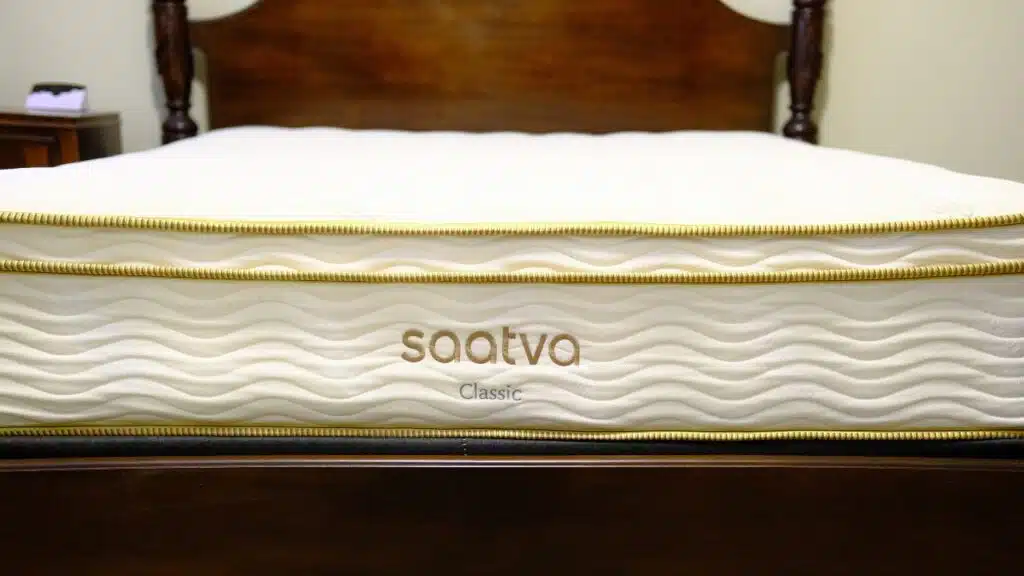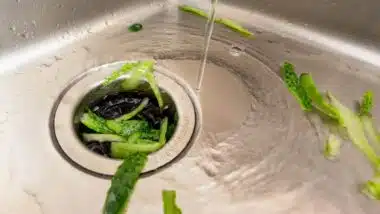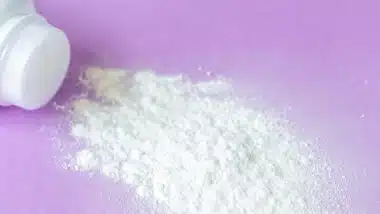
Saatva class action lawsuit overview:
- Who: Plaintiffs Melissa Williams and Helen Colby filed a class action lawsuit against Whitestone Home Furnishings LLC, which does business as Saatva.
- Why: The plaintiffs claim Saatva falsely advertises its mattresses as eco-friendly and chemical-free.
- Where: The Saatva class action lawsuit was filed in New York federal court.
A new class action lawsuit accuses Saatva of falsely advertising its mattresses as eco-friendly and chemical-free when they actually contain materials associated with health and environmental concerns.
Plaintiffs Melissa Williams and Helen Colby filed the class action lawsuit against Whitestone Home Furnishings, doing business as Saatva, on March 19 in New York federal court.
According to the lawsuit, Saatva misleads consumers by advertising its mattresses as “nontoxic,” “safe,” “natural,” “eco-friendly” and “chemical-free.” However, the plaintiffs say the mattresses actually contain materials like polyester fiber and viscoelastic polyurethane, which are associated with health and environmental concerns.
“Consumers would not expect them to be in the products marketed with the representations,” the lawsuit claims.
The plaintiffs say if they had known the truth, they would not have paid as much for the mattresses.
Saatva mattresses not made with eco-friendly materials, lawsuit claims
The lawsuit alleges that Saatva uses third-party certifications to market itself as a sustainable company and to further assure consumers that its mattresses are safe and environmentally sound.
Despite these representations, the lawsuit claims Saatva’s mattresses are made with polyester fiber, viscoelastic polyurethane and rayon fiber. The lawsuit explains that these materials are associated with health and environmental concerns, and consumers would not expect them to be in products marketed as nontoxic and eco-friendly.
The plaintiffs are suing on behalf of anyone who purchased a Saatva mattress in the United States during the applicable statute of limitations period. They are suing for violations of state consumer protection laws, breach of express and implied warranty and unjust enrichment.
The plaintiffs are seeking certification of the class action, damages, fees, costs and a jury trial.
In 2024, Saatva.com agreed to a $11.5 million settlement to resolve claims it violated California and Oregon laws with deceptive discount advertising. Saatva allegedly misrepresented discounts on its website, which deceived consumers into thinking they received good deals on products.
What do you think of the made allegations in this Saatva class action lawsuit? Let us know in the comments.
The plaintiffs are represented by Kim Richman of Richman Law & Policy.
The Saatva class action lawsuit is Williams, et al. v. Whitestone Home Furnishings LLC, Case No. 1:25-cv-01527, in the U.S. District Court for the Eastern District of New York.
Don’t Miss Out!
Check out our list of Class Action Lawsuits and Class Action Settlements you may qualify to join!
Read About More Class Action Lawsuits & Class Action Settlements:
- Fabletics class action filed over ‘deceptive’ VIP membership program
- Beyond Meat class action claims website illegally tracks, sells visitor data
- Class action lawsuit says SharkNinja ‘NeverStick’ cookware sticks at high temps
- Class action over ‘fake’ discounts at Eddie Bauer outlet stores moves forward















4 thoughts onSaatva mattresses aren’t ‘eco-friendly as advertised, class action claims
Please add me
Add me
Caveat emptor. Consumers should educate themselves regarding ingredients in everything so that they can make an informed decision about their purchases. The terms “eco-friendly”, “sustainable” and “non-toxic” are vague unless they are backed up with facts. Also, not all certifications are created equal and learning more about these is part of making an educated decision. Our own current administration is dismantling agencies that work to protect consumers from truly harmful chemicals. If our own government isn’t banning suspected and known toxins, consumers have to step it up. Also, FTC greenwashing laws are obsolete and haven’t been updated since 2012. The current cabinet just fired the Commissioner, so I don’t see this changing soon.
I would be embarrassed to file this lawsuit because each mattress has specifications and it is our responsibility to research the ingredients. Polyurethane foam is petrochemical based. Certi-pur promotes itself as a certifying body that tests foam for heavy metals and already banned classes of flame retardants. It is a marketing gimmick created by The Alliance for Flexible Foam. They should be examined because many mattress and upholstery manufacturers buy it assuming that it is truly more eco-friendly or know the truth but prefer it since it is perceived by consumers to be more eco-friendly. It is not though. U.S. foam manufacturers came up with self-serving certification.
Caveat emptor.
Add me